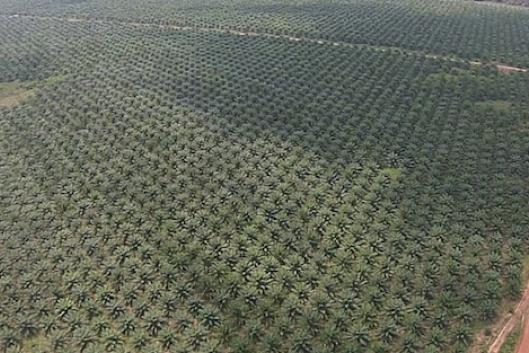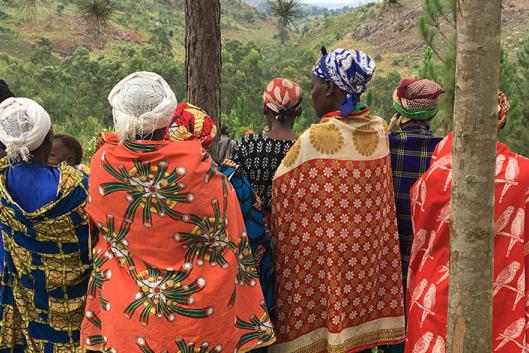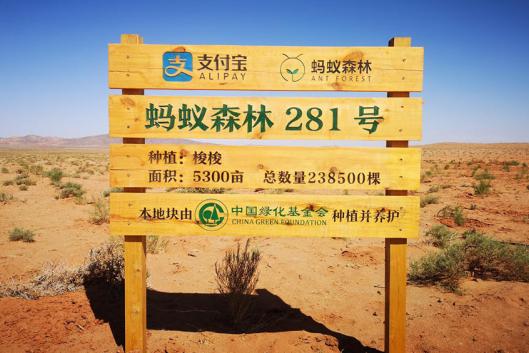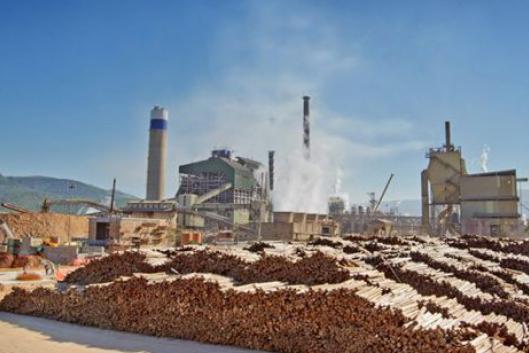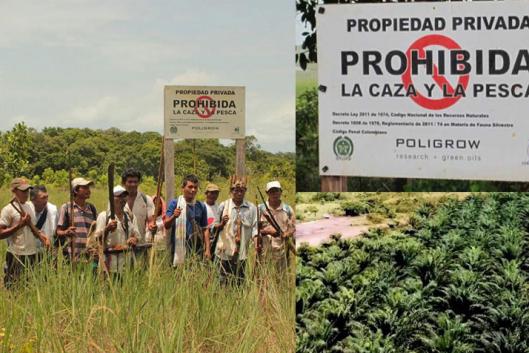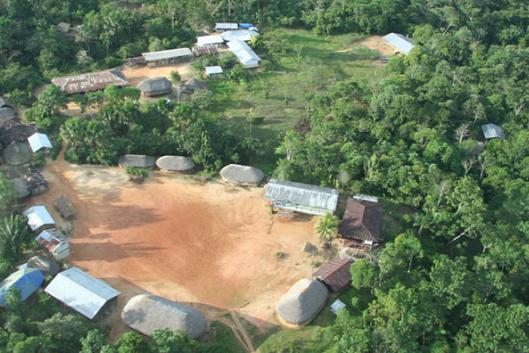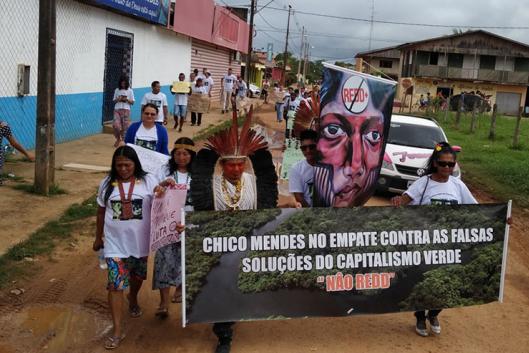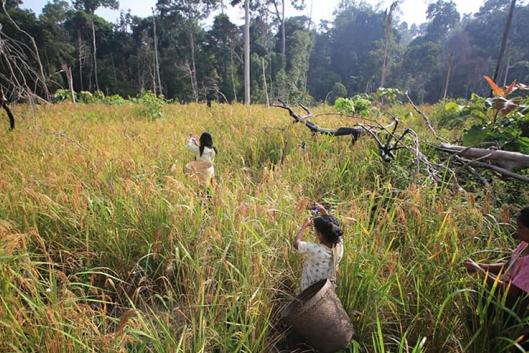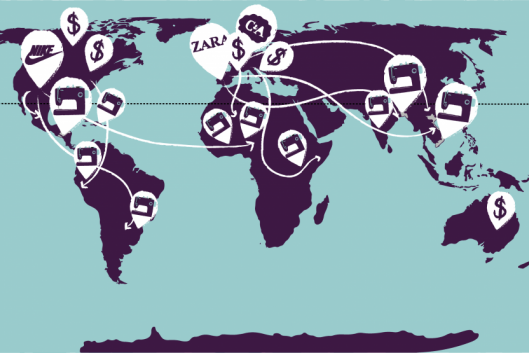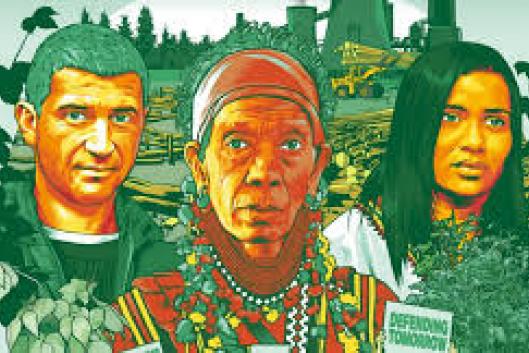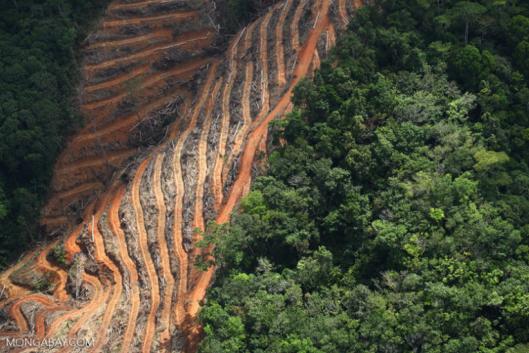Despite the various tactics that try to hide the underlying harm and violence behind large scale tree plantations, each year, communities and movements raise up on September 21st to give visibility to their struggles and to denounce the detrimental impacts tree plantations have on their lives and territories.
Green Capitalism Expanding on Communities and Territories | Bulletin 251 - July / August 2020
Green Capitalism Expanding on Communities and Territories
The articles in this Bulletin are written by the following organizations and individuals: Witness Radio Uganda; a researcher from China; GeaSphere Africa; a member of the Kichwa people of Sarayaku in Ecuador; an activist from Indonesia; and members of the WRM international secretariat.
WRM Bulletin
251
July / August 2020
OUR VIEWPOINT
GREEN CAPITALISM EXPANDING ON COMMUNITIES AND TERRITORIES
-
24 September 2020The large-scale plantations from UK-based New Forests Company (NFC) have meant violence for thousands of residents from Mubende, Uganda. More than 15 years after the company began its operations, affected communities still confront the long-lasting and severe damages.
-
24 September 2020A historical reflection of China’s main mass tree-planting projects puts in evidence the increasingly key role of capital and market forces in rural China. The most recent one is based on the idea of “green” consumerism and benefits some of the biggest retailer and technology companies.
-
24 September 2020Several of Sappi’s plantations have been converted from pine to eucalyptus trees without authorization. Data obtained in over 75 years to verify timber plantations’ water use demonstrate that eucalyptus trees use 30 to 50% more water than pine trees.
-
24 September 2020
Colombia: Palm-Producing Company Poligrow Plans to Grab more Land under the “Small Producers” Scheme
Violence, massacre and forced displacement in the context of the armed conflict in Colombia have served to advance the industrial cultivation of oil palm. Palm-producing company Poligrow has an undeniable role in land-grabbing and intimidation in the municipality of Mapiripán. -
24 September 2020Most governments, NGOs and corporations are promoting more Protected Areas and conservation areas around the world. But what does conservation mean? Marlon Santi of the Kichwa people of Sarayaku explains to us what the Amazonian peoples of Ecuador consider to be conservation.
-
24 September 2020The tens of millions of euros that the government of Acre received from the German government for its REDD+ program failed to stop deforestation. Despite this fact several Brazilian states continue to receive funds from the German government.
-
24 September 2020The approval of a road construction inside the first Ecosystem Restoration Concession in Indonesia puts in evidence the inherent contradictions of such concessions. (Available in Indonesian)
RECOMMENDED
-
24 September 2020Women’s March Global and Semperviva Feminist Organization (SOF) have produced a series of videos that bring a feminist critique to reflect on corporate power in three industrial sectors of exploitations: the food industry, the digitalization industry and the textile industry.
-
24 September 2020The NGO Global Witness recently released its 2019 report on the violence against land and environmental defenders - those who are at the frontlines of resisting the devastation and exploitation of people and territories. Their report evidences that 2019 was the year with the highest number yet of people murdered in one year since 2012, when the NGO began to publish data. 212 land and environmental defenders were killed in 2019, an average of more than four people a week. Over half of all reported killings occurred in two countries: Colombia and the Philippines. Read the full report in English here.
-
24 September 2020Three-quarters of oil palm concessions in Indonesia and Malaysian Borneo certified by the Roundtable on Sustainable Palm Oil (RSPO) occupy land that was forest and/or wildlife habitat as recently as 30 years ago. A new study on certified oil palm plantations and their links to past deforestation, published in the journal Science of the Total Environment, concludes that RSPO’s failure to account for past deforestation means that “every logged area ‘today’ could be certified as a sustainable plantation ‘tomorrow,’ in an infinite loop of meaningless certification.” Read an article from news portal Mongabay (in English) here.
-
24 September 2020A network of civil society organizations and social movements launched a letter to expose how big companies (agribusiness, industrial tree plantation, oil and mining sectors) take advantage of this time of crisis with the Covid-19 pandemic to strengthen the image of their brands by making donations to vulnerable populations. Meanwhile, they continue operating in the midst of the pandemic. The letter also highlights the role played by social movements and NGOs that, without receiving the same prominent visibility in the media, do provide support to populations in need in urban and rural areas by donating food and cleaning materials and creating networks of solidarity throughout the country.
